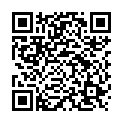|
|
|
| Module code: MBG21.B.52 |
|
3S (3 hours per week) |
|
3 |
| Semester: according to optional course list |
| Mandatory course: no |
Language of instruction:
German |
Assessment:
Course work
[updated 15.11.2021]
|
MBG21.B.52 Management and Professional Pedagogy in Health Care, Bachelor, ASPO 01.10.2021
, optional course, general subject
|
45 class hours (= 33.75 clock hours) over a 15-week period.
The total student study time is 90 hours (equivalent to 3 ECTS credits).
There are therefore 56.25 hours available for class preparation and follow-up work and exam preparation.
|
Recommended prerequisites (modules):
MBG21-1 Academic Methodologies and Study Skills I
MBG21-14 Vocational Pedagogy in Health Care III
MBG21-18 Vocational Pedagogy in Health Care IV
MBG21-4 Vocational Pedagogy in Health Care I
MBG21-8 Vocational Pedagogy in Health Care II
[updated 04.12.2025]
|
Recommended as prerequisite for:
|
Module coordinator:
Studienleitung |
Lecturer:
Dr. Sindy Lautenschläger
[updated 04.12.2025]
|
Learning outcomes:
After successfully completing this module, students will have the following skills and competencies:
.
Knowledge and Comprehension:
Students will understand the importance of curricula in the context of vocational education policy and societal and professional perspectives.
They will perceive curricula and (framework) syllabuses as organizational tools that are differently situated in terms of institutions and educational policy.
They will be familiar with different qualification frameworks (e.g. EQF, DQR, HQR, FQR).
They will be aware that the design of a curriculum must be explicitly based on an understanding of occupation and action, education and learning.
They will be able to analyze curricula for the health care field in the context of didactic and vocational pedagogical concepts.
They will understand the importance of articulating and following pedagogical processes when planning a series of lessons.
The Use, Application, and Generation of Knowledge:
Students will be able to evaluate curriculum processes and curricula critically.
They will have developed a nuanced understanding of the concept of curriculum.
Communication and Cooperation:
Students will be able to reflect on and discuss stakeholder participation (e.g., teachers and students) in curriculum development.
Scientific Self-Concept/Professionalism:
Students will be receptive to the critical examination of curricula.
[updated 15.11.2021]
|
Module content:
1. The term “curriculum”
2. Curricula and (framework) syllabi
3. Classification of curricula in national/international qualification frameworks (e.g. EQF, DQR, HQR, FQR)
4. Developing curricula
5. Critical analysis and discussion of curricular processes and health care curricula.
[updated 15.11.2021]
|
Teaching methods/Media:
Blended learning
[updated 15.11.2021]
|
Recommended or required reading:
Recommended literature will be announced at the beginning of the course.
[updated 15.11.2021]
|

